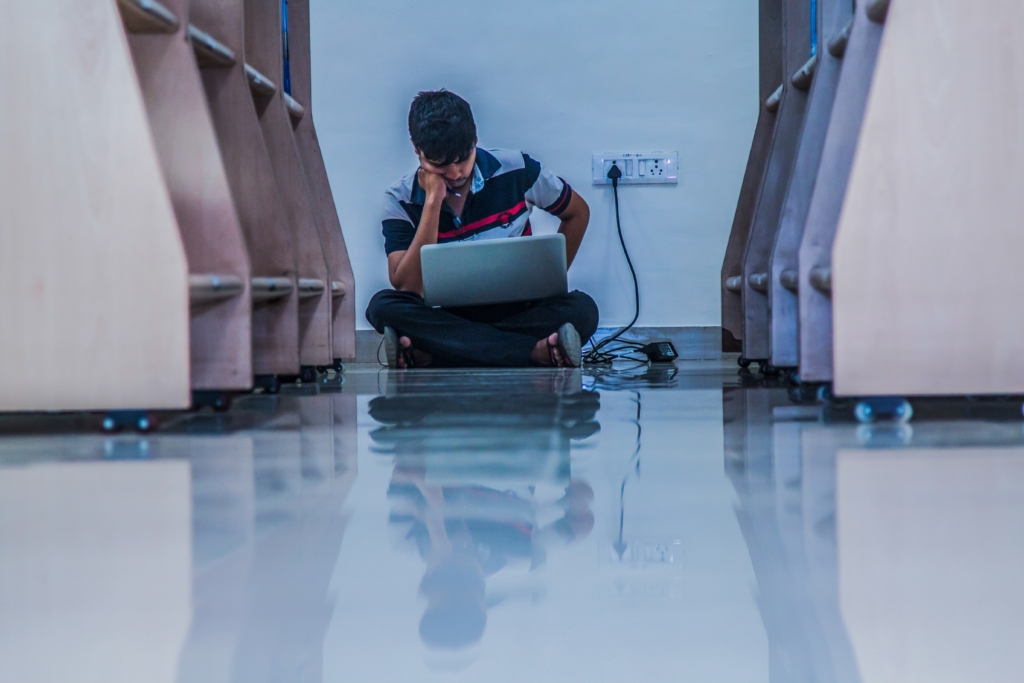A significant percentage of millennials and young people today are living with mental health conditions that are making it more challenging for them to succeed in college. These conditions have seen a geometrical increase over the last few years, creating a huge chasm between what students as little as ten years ago expected of themselves and what students today expect. Mental health professionals are recognizing that young people today are under a great deal of pressure and in the new digital era face challenges past generations didn’t struggle with in the same way.
The Culprits: Why College Students are Strugglin g
g
College students are struggling; striving for perfection not only academically but physically and socially as well. The phenomenon of showcasing ones achievements across social media platforms has created an atmosphere in which everyone is trying to make it look like they “have it all”: success equally balanced across ones mental, physical, spiritual and social aspirations. This, in turn has created a society of young people who are unduly hard on themselves, who see every achievement as sub-par and struggle with forming meaningful connections with others. Social awkwardness, fear of failure, and low self-esteem are on the rise, with a subsequent increase in mental health conditions including anxiety, OCD, chronic depression and suicidal ideation. Not only do mental health conditions make college more difficult, they seem to be making it impossible as college drop-out rates sky rocket with each passing year.
A college student regularly saturating themselves in internet culture will consume social media every day that is filled with images of people with ‘perfect lives’: carefully curated portals into perfection. Naturally, students are comparing every area of their lives to these facades and in turn, this is creating unrealistic and unhealthy expectations they feel they need to meet or surpass. Nobody wants to be left behind and the fear of missing out has never been greater. As mentioned, college students today are not only facing academic pressures but a host of social, physical, political and spiritual pressures that are arguably assailing students to a greater and more frequent extent than in the past.
What the Numbers are Saying
According to this study, among college students, anxiety is the most prevalent mental illness, accounting for 41.6% of mental health cases, while depression is a close second – accounting for 36.4% of cases that come forward to college mental health services in United States. The prevalence of these two conditions is understandable. Students are under a lot more pressure now than their contemporaries a scant 15 years ago. The financial burden of attending college has never been greater and further post-graduate economic worries wait dauntingly on the horizon for students who do manage to successfully graduate. This coupled with the aforementioned social pressures and it is not hard to understand why students are finding it difficult to focus on their studies in pursuit of academic excellence.
Ironically, students report struggling to develop meaningful social relationships despite the highly ‘social’ nature of the internet platforms they interact on. 35.8 percent of students report having problems forming a lasting connection or finding friendships both platonic and otherwise.
Since 2009, there has been a 30% increase in college students seeking mental health treatment, but only less than 25% of them will get the help they need due to a lack of resources and infrastructure that make programs accessible and affordable for students. Millennials are struggling with their mental health through college, producing adults who will likely struggle with it – or the scars left behind from it – for their entire lives.
The Symptoms
The cracks are beginning to show on campuses across North America. It seems the approach of leaving college students to fend for themselves has failed.
Sexual abuse on campus is on the rise, according to this survey. There is an increasing number of students who have suffered or are suffering abuse, sometimes inflicted by their fellow students, friends, or family.
There is a greater propensity for students to act out by indulging in drugs and alcohol. This creates a slippery slope of mental unwellness that does not help with the underlying issues.
The rate of suicide across campuses is also increasing, fuelled by frustration and the low rate of psychological and psychiatric help available to these students. Many young people are pushed to the brink of their mental capacity and take that final plunge into oblivion…
The Call to Action
The increase in the number of students seeking mental health counselling on campus indicates there is a silver lining to the state-of-affairs. That silver lining is that college students are evidently not afraid to ask for help. Hopefully, the growing awareness of these mental health issues will lead to the swift development of effective mental health programs in colleges across the country. Students should have access to talk therapy, pharmacotherapy when necessary, and support groups because they certainly aren’t alone in their struggles. There is an urgent need to stem the tide of mental illness sweeping across the nation’s college campuses by simply making it easier to get help from a professional.
Do Not Give in to Despair – Treatment is Accessible Right Away
Amanda Itzkoff, MD has years of experience working with college students at her practice in Manhattan, NYC and has worked with dozens of students who couldn’t find appropriate treatment on campus. As many students are actively enrolled in classes they cannot simply wait for campus to develop their own mental health services and desperately needed to be instituted so they can get back to their studies. Furthermore, services available via college campus referrals directly are often of lower quality and may cause students to have concern for their privacy (because they may actually be seen by students training for degrees in mental health related fields at their own institution).




